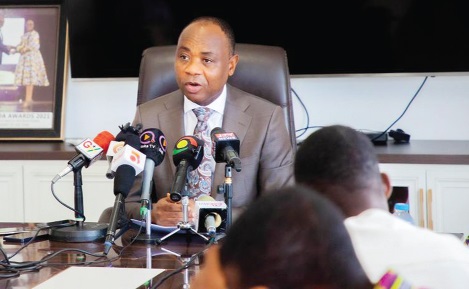Child Rights International (CRI) has called on the government to take urgent action to address the effects of the Community Mining Scheme on children who have been adversely impacted by the policy.
The call follows a recent study by the child-focused organisation which revealed disturbing statistics on school dropouts, health risks and child exploitation in areas where the community mining scheme was in force.
The findings paint a gloomy picture of the long-term consequences of the policy for children who were drawn into hazardous and exploitative mining activities.
According to the report, while school enrolment for children between 13 and 17 years averaged 90 per cent in non-mining areas, only 18 per cent of children aged 13 to 14 years and 17 per cent of those aged between 15 and 17 years were still in school in mining communities at the height of community mining operations.
For example, school attendance in Upper West Akim and Ayensuano, two districts previously affected by community mining, dropped to 65 and 62 per cent, respectively.
The research, conducted between 2023 and 2024, covered mining communities, many of them illegal mining sites, in the the Ashanti, Western, Central, Eastern, and Western North regions.
It sampled over 2,000 households and interviewed 6,000 children, of which 57 per cent were male and 43 per cent female.
Forced into adulthood
The study also found that many children had assumed adult responsibilities far too early, often becoming the main breadwinners for their families.
It revealed that while the average income in mining areas was GH¢877.90 a month, children working in illegal mining could earn as much as GH¢4,200 a month — a strong incentive to abandon school for dangerous work.
It said 302 children (4.9 per cent) were found to be supporting their parents financially, while 508 children (8.3 per cent) were contributing to the upkeep of their grandparents.
Health impact
Health-wise, the impact was even more alarming as the report pointed out that about 81.7 per cent of children surveyed reported suffering injuries from mining tools or accidents, while 93 per cent of health workers said children had been exposed to toxic substances such as mercury, which could cause severe respiratory damage or death.
In areas such as Amansie West and South in the Ashanti Region, 85 per cent of children were diagnosed with pneumoconiosis, a group of lung diseases caused by dust inhalation.
In the Western North Region, the same percentage suffered from tuberculosis, while 70 per cent of children in Bia East and West were battling other mining-related respiratory diseases.
The report also documented widespread exposure to sexual exploitation and sexually transmitted diseases, with 45.3 per cent of children, especially girls, reporting experiences of having sex for survival and other forms of sexual abuse in mining camps.
Call to action
At a press conference in Accra yesterday, the Executive Director of CRI, Bright Appiah, called on the government and relevant stakeholders to implement targeted interventions to support children who were exploited or displaced by community mining before it was abolished.
The Minister of Lands and Natural Resources, Emmanuel Armah-Kofi Buah, last month announced the suspension of the Community Mining Scheme (CMS) introduced by the previous administration because it was not different from illegal mining.
He said the government, therefore, suspended the scheme to reform it for operation by the middle of this year.
Mr Appiah said the damaging effects of community mining were still being felt in mining communities, especially among children who dropped out of school, sustained injuries or were exposed to harmful chemicals and exploitation.
The Executive Director of CRI called for a national rehabilitation programme aimed at reintegrating affected children into school, providing access to health care, and restoring their rights to a safe and protected childhood.
Mr Appiah further called for the strict enforcement of the Free Compulsory Basic Education (FCUBE) programme through increased investment in rural education infrastructure and social welfare services, alongside strict penalties for parents who neglect their children’s education.
He also advocated the empowerment of law enforcement agencies, including the police and the Minerals Commission, with adequate resources to inspect mining sites, remove child labourers and prosecute perpetrators.
Among other recommendations, CRI urged the Ghana Gold Board (GoldBod) to launch a sustainability programme to ensure gold from areas where child labour was used was rejected, while promoting mercury-free mining and publishing annual progress reports.
Mr Appiah also proposed a national policy that integrated child protection mechanisms into all mining governance frameworks to ensure the mistakes of the past were not repeated.

